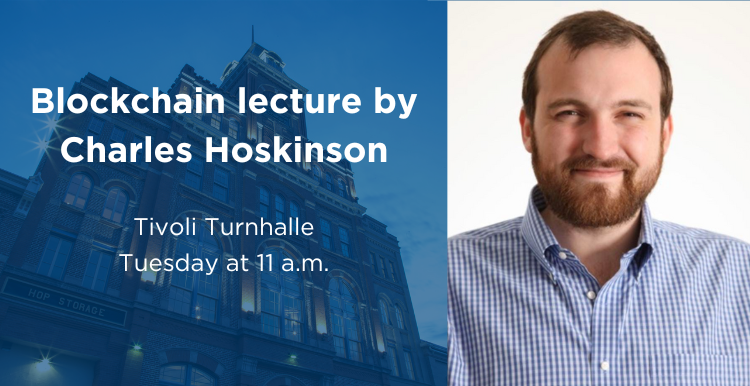

Most people have at least heard the word “blockchain,” even if they don’t know what it means.
In the simplest terms, blockchain technology allows people to confirm transactions without needing a central clearing authority. With multiple applications, including fund transfers, health care, voting and more, blockchain offers a secure way of sharing information across a peer-to-peer network.
If it’s still unclear, Charles Hoskinson, chief executive officer of Input Output Global — one of the world’s pre-eminent blockchain infrastructure research and engineering companies — is coming to campus during Homecoming Week to speak about the future of blockchain in the banking industry.
“It’s a very fast-paced, somewhat controversial industry,” said Hoskinson, a former student at Metropolitan State University of Denver. “I’ve been to 72 countries in the last eight years, and I spoke before Congress this year — it’s a long way off from being a Roadrunner.”
Hoskinson got into the industry quite by accident. He says he always liked mathematics and cryptography, so when Bitcoin was introduced in 2009, it had everything he was interested in rolled into one.
“There was a strong economic philosophy: this idea of private money, getting rid of central banks and having money that gets worth more over time,” he said. “There were also a lot of interesting challenges. For example, how do you build an open-source movement? How do you get people to invest and merchants to accept it?”
Hoskinson set out to find the answers and became part of a movement that built the cryptocurrency industry from the ground up. Today, hundreds of millions of people worldwide are involved in the multitrillion-dollar business. But beyond making money, Hoskinson says blockchain can address various social issues, such as giving people access to the global financial system and maintaining the integrity of elections.
“In different parts of the world, there are large numbers of people who are underbanked — they don’t have economic identity and agency,” he said. “A transaction to send money to family in another country could cost 8%. Very poor people are losing that money. It’s not a good system. Cryptocurrency pushes power to the edges and lets people be their own bank.”
Hoskinson says blockchain is a cheap and effective way to have a fraud-free election that maximizes accessibility, minimizes security risks and guarantees that everybody’s voice is represented. Other applications include verifying that individual votes are counted correctly, confirming that a donation goes to the right place. Blockchain could even be applied to the food-supply chain, he said. Imagine being able to follow the steak you buy in the grocery store from the cow in the pasture (including the farmer’s name) to your plate. That’s possible.
In the end, Hoskinson says blockchain is all about creating transparency and inclusive accountability, giving the customer the power to make informed decisions and ensuring that the systems in place provide fair consideration to each person.
“Do you want to live in a world where the strong no longer victimize the weak to maintain themselves and where everybody is treated equally?” he asks. “This technology provides a solution-oriented approach to problems people want solved.”
Join the MSU Denver community for a blockchain lecture with Hoskinson on Tuesday at 11 a.m. in the Tivoli Turnhalle.
For more information, contact Jacques Swanepoel, director of development for University Advancement.


